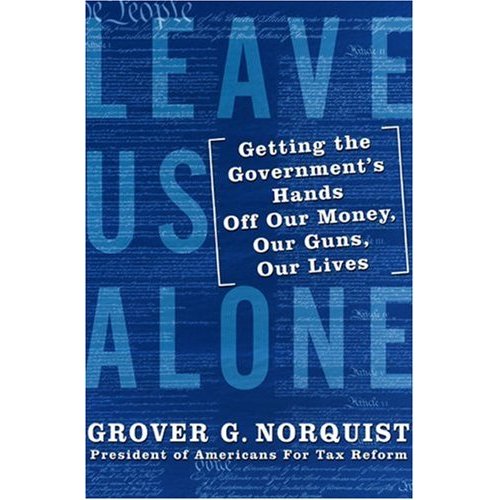 Just as Milton Friedman is my ideological hero, Judge Richard Posner is my legal hero. I'm such an economics dork. Posner's latest comment has an interesting point about crime:
Just as Milton Friedman is my ideological hero, Judge Richard Posner is my legal hero. I'm such an economics dork. Posner's latest comment has an interesting point about crime:The basic economic objection to crime is that a crime is a costly but sterile transaction. It redistributes wealth, which doesn't increase the size of the social pie; and therefore the costs involved in crime—the time and other inputs of the criminal, and the defensive measures taken by potential victims—are a deadweight loss to society.This uses economic jargon to make a point I was considering in the shower recently (allow me to reiterate, I'm a dork). I was trying to distinguish between morals and mores. I reasoned that things that negatively affect the rights of someone other than the perpetrator are immoral--murder, theft, etc. Whereas forbidden acts that do not affect the rights of anyone other than those committing them would be against social mores--consensual, but non-traditional sex. Ultimately I abandoned this distinction as unsatisfactory.
But notice that the economic definition of crime as a sterile transaction (or coerced transfer payment) does not correspond to the legal definition of crime; in law, a crime is anything that the government forbids on pain of criminal penalties. Victimless crimes tend to be productive transactions, which make the parties better off (at least by their own lights). Attempting to deter or prevent such transactions are likely therefore to reduce the overall social welfare, like other interferences with the operation of free markets. Of course there may be external costs, costs external to the parties to the drug transaction or other victimless crime, that in some cases justify punishment, but this is probably not true in general.
 It was unsatisfactory because I would not consider it immoral to pollute, for instance, which would negatively affect the property rights of the owner of the polluted area. I wouldn't consider it immoral because pollution is a by-product of productive activities, which increase total societal welfare (otherwise the enterprise would fail as unprofitable). No one pollutes for the sake of polluting (except for villains on Captain Planet). However, I would consider vandalism, the destruction property not connected to any other productive enterprise, to be immoral.
It was unsatisfactory because I would not consider it immoral to pollute, for instance, which would negatively affect the property rights of the owner of the polluted area. I wouldn't consider it immoral because pollution is a by-product of productive activities, which increase total societal welfare (otherwise the enterprise would fail as unprofitable). No one pollutes for the sake of polluting (except for villains on Captain Planet). However, I would consider vandalism, the destruction property not connected to any other productive enterprise, to be immoral.Posner's economic distinction--in terms of societal welfare--is more refined. Although pollution is not a victimless crime, it is not merely a redistributive act either. Certainly arguments can me made that the increased welfare from the product that creates it do not adequately compensate for the subjective losses of to the pollutee's property. These arguments are less forceful considering that nuisance law requires the polluter to compensate damages to the pollutee (but again we must factor in the transaction costs of going to court to enforce the law...it all gets very complicated).
Even if we have not been able to make a proper distinction between morality and mores, this economic distinction would be useful for law. A government (in my libertarian view) may legitimately prohibit only those acts that would infringe on the rights of others--these would be the crimes that are the "costly but sterile" transactions. The prohibition of acts that do not infringe on the rights of others, often the victimless crimes such as sodomy or drug use, are not a legitimate exercise of government power.
This brings me to an interesting question: should we consider taxation a crime? Certainly taxes are a costly but sterile transaction that only redistribute wealth. Can we find a principled reason to exempt government from criminal punishment or to exempt taxes from the list of crimes? Otherwise, we would have no government to protect us from the crimes of other citizens. Could that be enough of a governmental "product" to justify the taxes?



1 comment:
I think you raise a good point about taxation, and it's a point that is deeply rooted in the foundation of our country. I would tend to look at it as a balancing act - once the benefits from the government are exceeded by the burden of the taxation, taxation becomes a crime. As long as the benefits provided by the government are greater than the burden of taxation, people give the government permission to redistribute wealth. It's almost more comperable to normal contracting - as long as the contract is agreed to, it doesn't matter if an outside observer believes that the trade is unfair; it only matters that the members of the contract believe it to be fair. As soon as one party fails to fulfill its own end of the bargain or demands more than the amount agreed upon, there is a breach. Any enforcement of the new unilateral changes would be a crime.
But it's late and it's entirely possible that that made more sense in my head than it does here.
Post a Comment